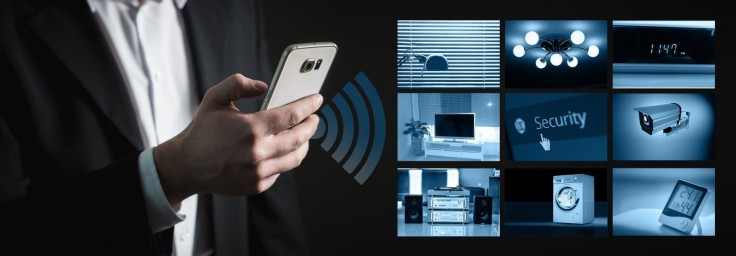
There are plenty of reasons people use public Wi-Fi - it's easily accessible for the most part and is generally free/complimentary. Whether it's sitting in a coffee shop to get some work done or using the Wi-Fi at the airport to browse Twitter. But from a safety standpoint, using public Wi-Fi is a massive risk. No matter what a person uses it for, there are multiple cybersecurity threats that can give hackers access to their devices and their information.
Read on to find out why public Wi-Fi is so dangerous and what to do instead when it comes to using the internet out in the wild.
The Dangers of Using Public Wi-Fi
Cybercrime is thriving, and no one is safe, least of all people who connect to an unsecured network - which is what public Wi-Fi is. Hackers are all too aware of how easy it is to access people's information or infect their devices via an open network.
Part of the problem is that people take big risks when connecting to a public Wi-Fi network because they don't take the time to make sure it's legitimate. They look for a Wi-Fi name that sounds correct, like "Coffee Shop Wi-Fi", and hit the connect button. And this is one of the behaviors that hackers love to exploit by setting up fake hotspots of their own with similar names. This is called an evil twin attack. On top of that, users tend to use public Wi-Fi to access confidential work data, log onto personal accounts, and do internet banking. Despite knowing all of the danger this poses.
The other problems are much less simple to avoid, seeing these attacks are managed over legitimate public Wi-Fi hotspots. These include:
Man in the middle attacks: Attackers intercept a connection to a website and route all requests through their device first. This allows them to monitor a person's browsing activity, including every password they enter into a site.
Malware injections: Hackers can slip malicious code into a person's device via the public Wi-Fi connection without them even knowing.
Packet sniffing: Hackers use special software to see all of the data passing through the Wi-Fi network. This gives them access to everything a person does online while connected.
Sticking to Mobile Data is the Best Alternative
A mobile 4G connection uses mobile data and sends the connection through a cellular network. While using mobile data tends to be more expensive than regular data, it's a much safer option than public Wi-Fi. Yes, opting for free Wi-Fi is very tempting, but the risks outweigh the rewards in this case.
Of course, nothing is infallible, and a 4G connection can also be hacked, but at this time, the only known successful hacking attempts are proof-of-concept. This means that white-hat hackers have had successful attempts at getting into 4G to identify security weak points. So while 4G is technically hackable, it's a lot of hard work, whereas anyone can download a couple of tools and start snooping on public Wi-Fi.
If Mobile Data isn't an Option, Use a VPN
Sometimes using mobile data just isn't feasible, and in those cases, it's better to use a VPN when connecting to public Wi-Fi instead. A VPN encrypts the device's connection through Wi-Fi, prohibiting anyone from seeing any data sent or received over the network. This works because the encryption forms a protective barrier and scrambles the data so that even if someone gets it, they only see gibberish.
Even though this is a strong deterrent from having anything intercepted by hackers, continue to be cautious and take precautions. A VPN won't protect someone's device from being infected with malware. So make sure to ask someone working at the establishment for the correct name of the Wi-Fi and turn on the VPN before connecting. Also, it's best to still avoid logging into sensitive accounts like work email and internet banking as much as possible.
Make sure to follow other cybersecurity best practices as well, like using unique passwords for every account and setting up two-factor authentication. This will prevent hackers from doing further damage should they get access to an account.
Conclusion
Staying on top of new security threats is more important than ever because hackers are getting bolder by the day. This is especially true because people use the internet for an increasing number of confidential activities like internet banking and remote working. The dangers of public Wi-Fi are pretty well-known by now, which ironically also increases the danger since this attracts even more new/wannabe hackers. Don't be easy prey for them.
© Copyright 2025 Mobile & Apps, All rights reserved. Do not reproduce without permission.

















